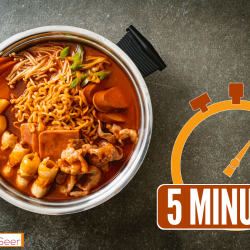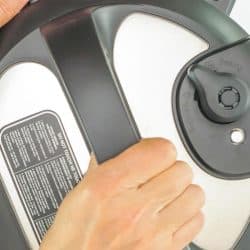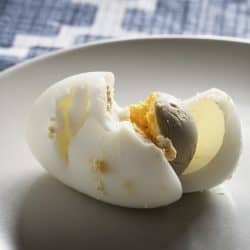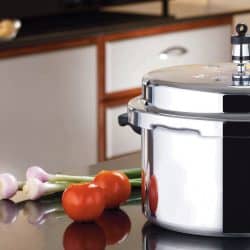Cooking is a skill that you always have to hone. One of the best ways to start learning is to try and tackle some of the kitchen basics. If you've been struggling to learn how to use a pressure cooker or Instant Pot, for example, you might be wondering how to use one to boil an egg. We did the research to bring you the answer.
You can boil an egg in a pressure cooker or Instant Pot by filling the device with water, cooking your eggs for five minutes, and then blanching the eggs in cold water.
The process serves two purposes. For starters, Instant Pots and pressure cookers make it easy for you to boil the perfect hard- or soft-boiled egg. More than that, though, a simple egg recipe can help you overcome any apprehensions you may have about your Instant Pot or pressure cooker. If you've been struggling on either front, this process can make your time in the kitchen a little less stressful. Without further ado, let's discuss the process in greater detail.
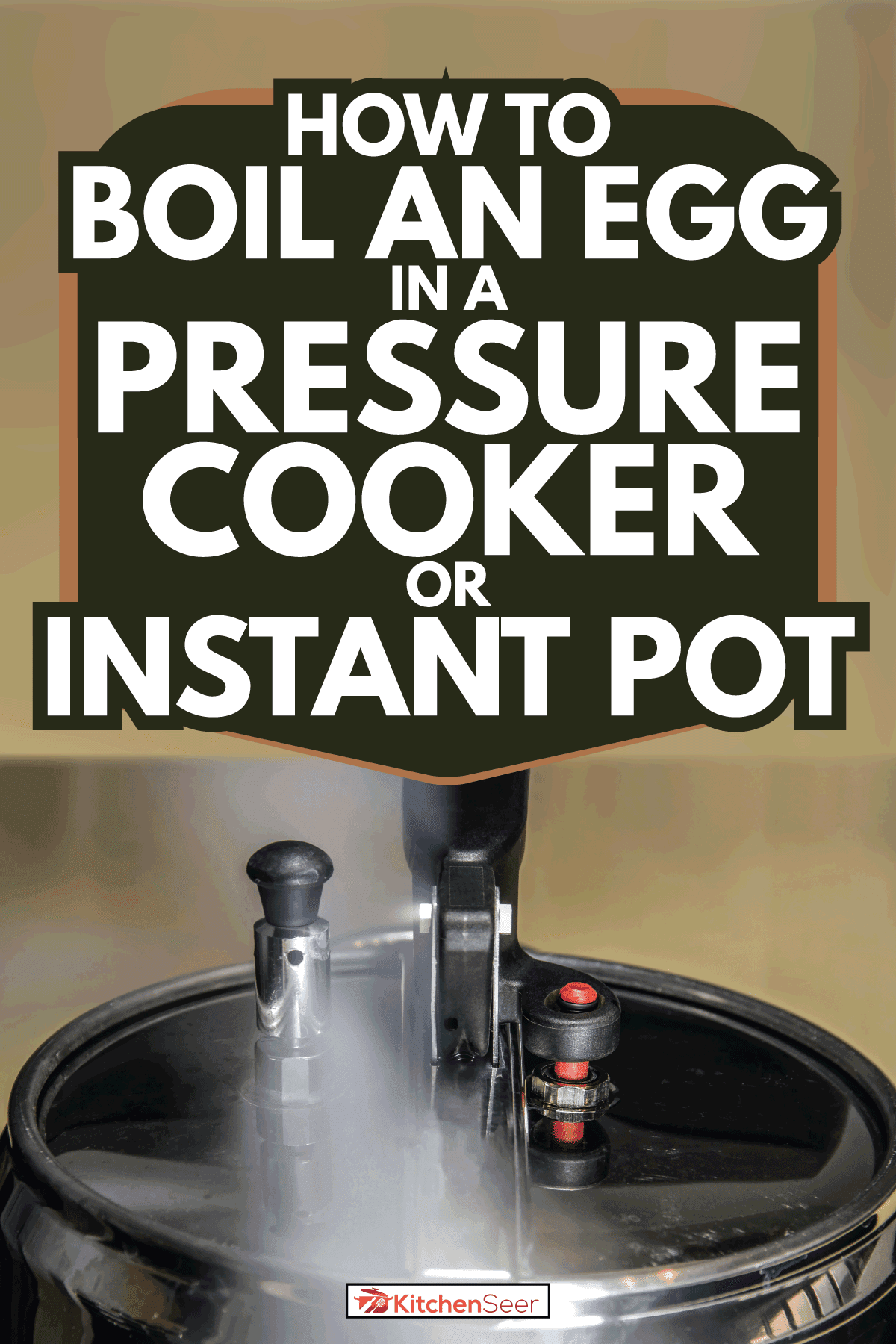
Boiling An Egg In A Pressure Cooker or Instant Pot
Both pressure cookers and Instant Pots are celebrated for their convenience. If you want to cook a lovely meal but don't have the time to watch a pot boil, you can turn to either of these devices. The trick, however, is determining how to best put either of these kitchen tools to use.
If you want to boil an egg in either a pressure cooker or an Instant Pot, you can't approach the process like you're using a stove. Perhaps even more importantly, it's difficult to cook a single egg in a pressure cooker or Instant Pot.
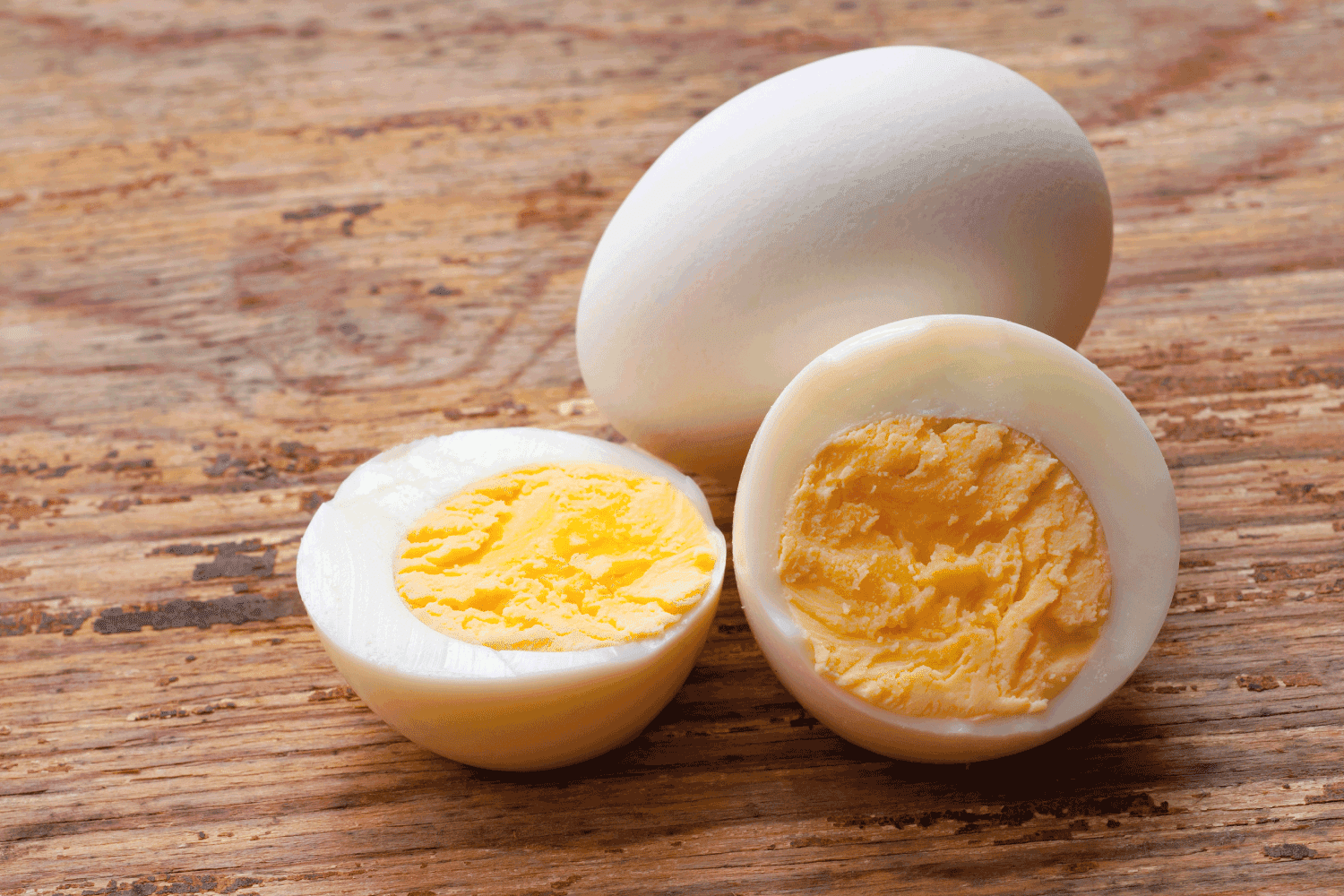
To cook an egg in a pressure cooker, then, make sure you have several dozen eggs available. Then, take the following steps to most effectively use your Instant Pot or pressure cooker:
- Fill your pot with either one or 1 1/2 quarts of cold water, with the amount depending on the size of your pot.
- Set your steam rack into your cooker.
- Place your eggs on top of the steam rack.
- Secure the lid of your cooker.
- Set a timer for five minutes on high.
- As soon as those five minutes pass, allow the pressure from your device to release for at least five minutes.
- Remove the eggs and blanch them in ice water.
When you blanch your freshly-cooked eggs in ice water, they're easier to peel out of their shells. Leave your eggs in the ice water for at least 20 minutes before moving forward with the process.
Note that if you want to eat a soft-boiled egg, you'll need to shorten your eggs' cook time. Cook a soft-boiled egg for no more than three minutes, then blanch them to be able to peel them more easily.
Read more: Does A Pressure Cooker Work On Induction
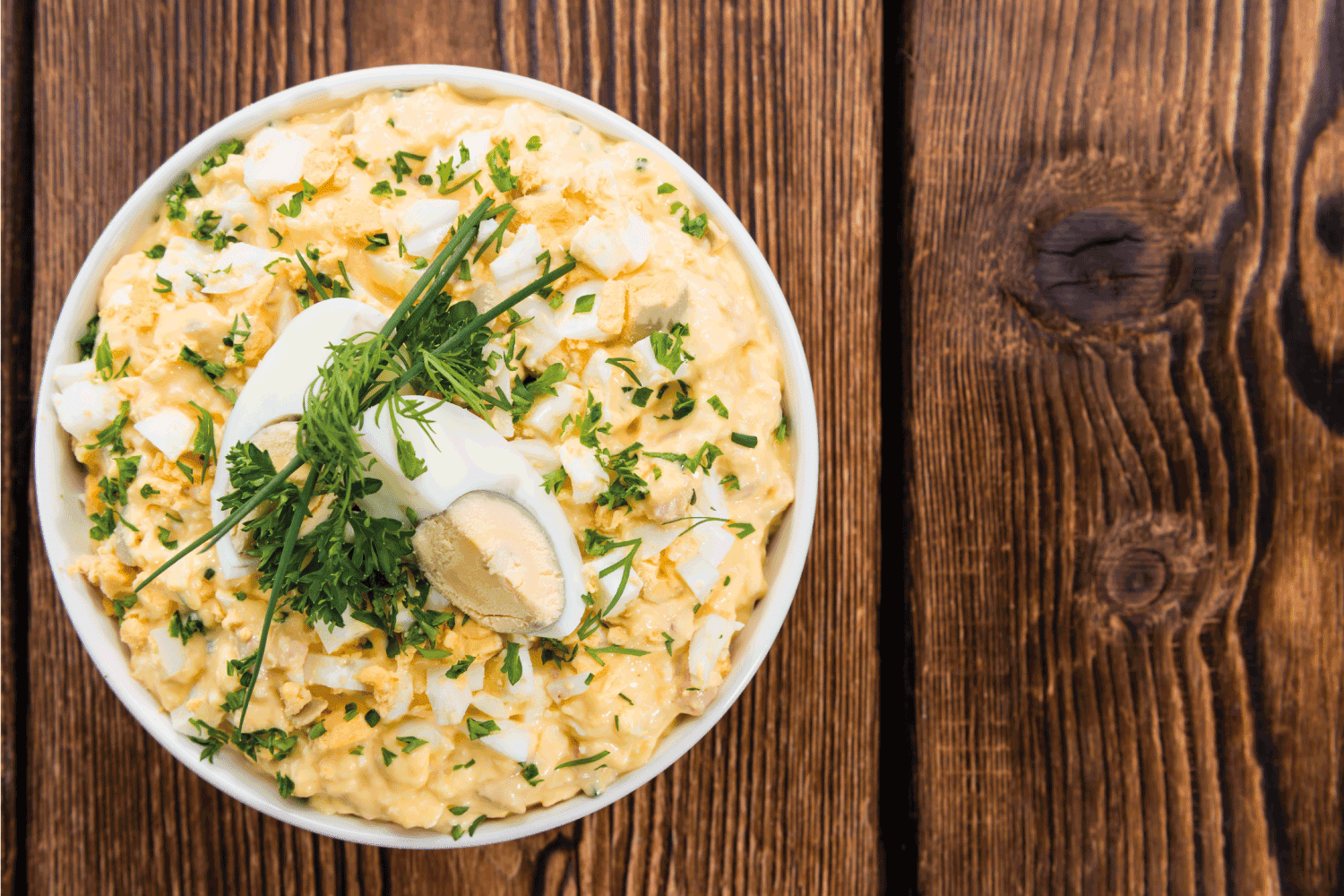
What Foods Can You Make with a Hard-Boiled Egg?
Hard-boiled eggs are delicious to eat on their own. There are plenty of foods that you can make, however, with the eggs you make in your pressure cooker or Instant Pot. Some of the easiest foods to make with your hard-boiled eggs include:
- Egg salad
- Deviled eggs
- Cobb salad
- Braised eggs
- Eggs Benedict
These eggs make fantastic main dishes, side dishes, and accessories to larger dishes. Come Easter, you can even use your pressure cooker to speed along the process of painting eggs.
It's up to you and your preferences to determine how you want to put your eggs to use—but both an Instant Pot and pressure cooker will make your job easier.
How Many Eggs Can You Cook in a Pressure Cooker?
As mentioned, it's not usually in your best interest to cook a single egg in your pressure cooker or Instant Pot. However, most of these pots are constrained by their sizes.
While Instant Pots tend to come in 3-quart, 6-quart, 8-quart, and 10-quart sizes, you still need to have an idea as to have many eggs you can safely fit into the container before you start cooking.
Fortunately, both pressure cookers and Instant Pots tend to offer you hard-boiled eggs in abundance. While you'll want to keep your water level below the maximum fill line of your pot, you can fill both of these devices to the brim with eggs. In turn, you can cook an average of 72 eggs in your pot.
It's not always practical to cook this many eggs, of course. As long as you can find a happy medium between 72 eggs and a single egg, though, cooking eggs in either a pressure cooker or an Instant Pot can make your daily cooking responsibilities a little easier.
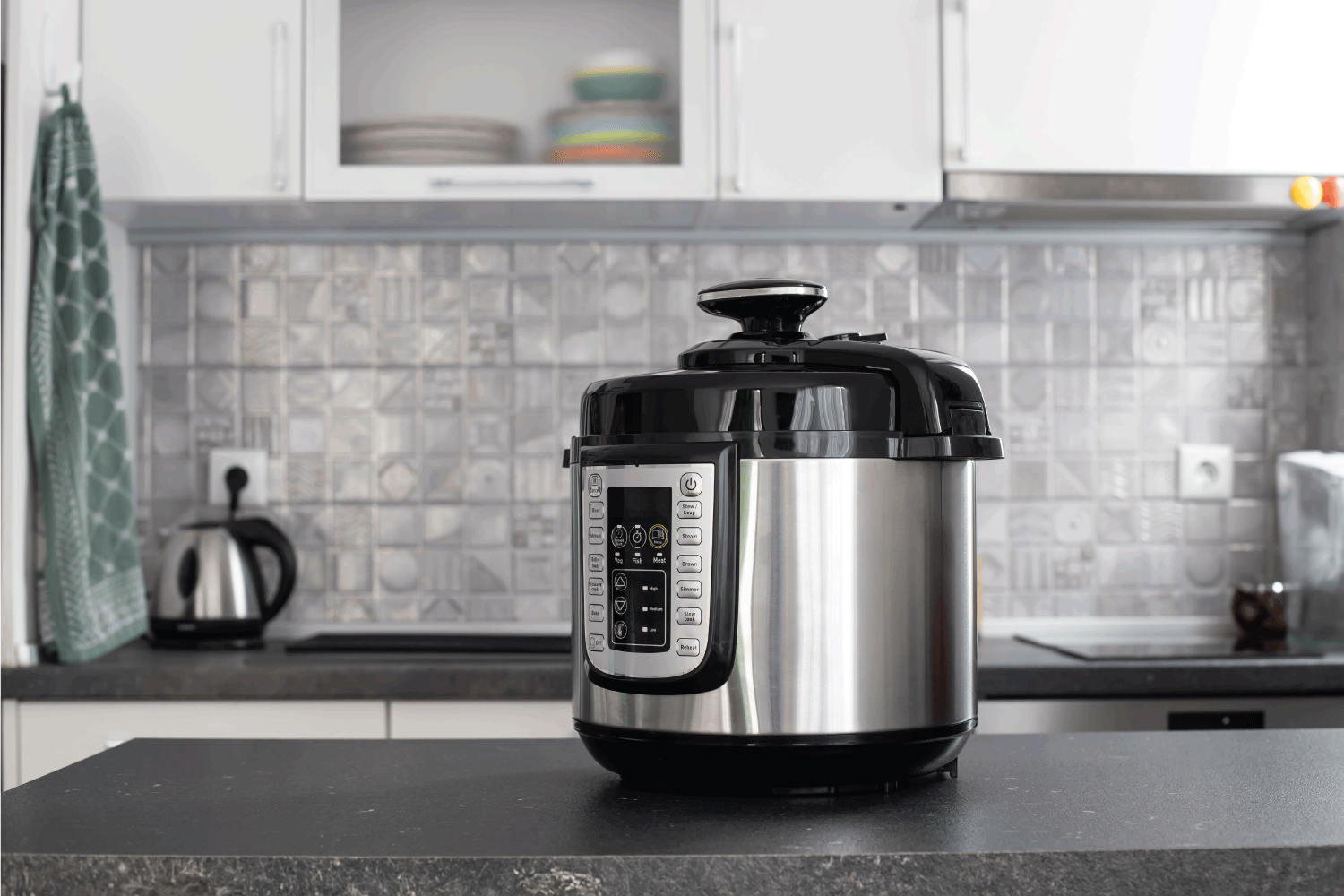
Does Liquid Boil in a Pressure Cooker?
Pressure cookers got their name for a reason. These kitchen devices use their internal pounds per square inch (psi) of pressure to increase the temperature at which your food cooks. It's that pressure that subsequently causes your food to cook at a faster rate than it might on the stove.
More specifically, when you place water in your pressure cooker alongside eggs, it's the pressure that raises that water's temperature.
After you've secured your pressure cooker's lid, the pressure inside of it starts to rise. In turn, the temperature of both the water and your food starts to rise. The liquid you're cooking your eggs in does start to boil, just as it would on your stove.
This, however, is where the process begins to differ from stovetop cooking. The lid of your pressure cooker keeps both the temperature and pressure inside of your device high.
As a result, your food will continue to cook at a consistent and rapid pace. This is also why you need to vent your pressure cooker before taking the food out of it. If you don't, then you could do damage to both the device and your food.
So yes, the water inside of your pressure cooker does boil—and much faster than it would on the stove. It's that combination of steam, pressure, and heat that leaves your eggs well cooked in nearly no time at all.
Read more: What’s The Best Type Of Pots And Pans For Cooking On A Gas Stove?
How Long Do Hard-Boiled Eggs Last?
If you want your hard-boiled eggs to last a considerable amount of time, it's best to keep them in a sealed container in your refrigerator. Doing so can keep your eggs in good condition for up to a week.
While you can keep your hard-boiled eggs outside of the refrigerator, they're likely to go bad much faster than they would otherwise.
Note, too, that the amount of time that your hard-boiled eggs last will depend on what you've done with those eggs. Whole eggs can last in the refrigerator for between seven and eight days. Comparatively, eggs that you've used for egg salad tend to be best within five days of their use.
Deviled eggs don't last long if they aren't covered, as the exposed yoke can grow hard within a matter of hours. When they're covered, though, deviled hard-boiled eggs can last up to three days in your refrigerator.
Why Do Hard-Boiled Eggs Turn Grey?
It's not the whites of your hard-boiled eggs that can turn grey over time. Rather, a small ring of discoloration can appear around the yolk of your hard-boiled egg.
This discoloration can mean one of two things. In most cases, the grey ring around the yolk of your egg tends to indicate that the egg is overcooked. While you can still eat the egg or use it for cooking purposes, both the yolk and white may be tougher than you usually like.
Iron can also cause a grey line to appear around the yolk of your hard-boiled egg. If there's a substantial amount of iron in your water, then your eggs can start to take that iron on during the boiling process.
In these cases, it's in your best interest to have a professional test your water to determine its iron content. You can invest in a faucet filter to draw a significant percentage of the iron out of your faucet in the meantime.
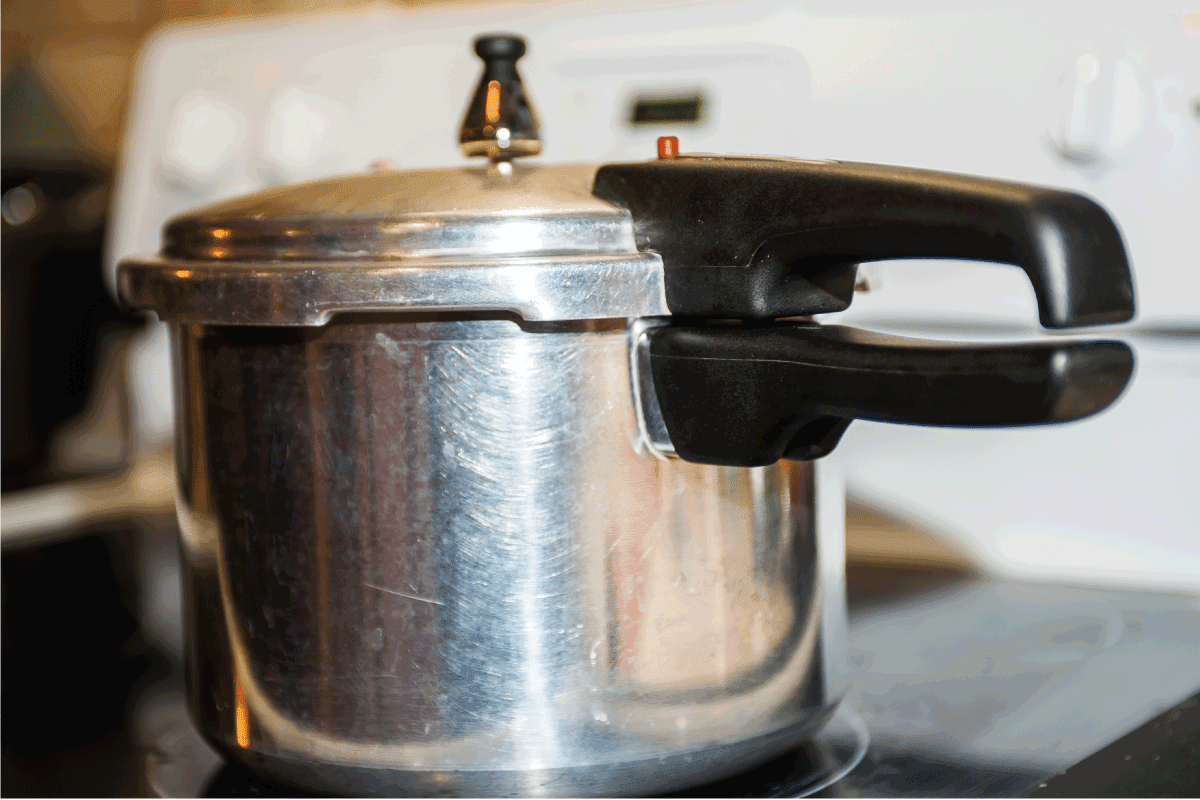
Put Your Pressure Cookers and Instant Pots to Regular Use
While Instant Pots and pressure cookers have grown in popularity, many cooks still struggle to use them effectively. Sometimes, the best way to learn how to use a new kitchen tool is to use it to make simple recipes.
Hard-boiled and soft-boiled eggs are some of the more versatile, basic home foods that you can make around your home. If you have a pressure cooker or Instant Pot, you can cut the time needed to cook these staples down to a mere five minutes. At the same time, you can learn how to time your Instant Pot cooks and release the device's pressure.
If you've been struggling to cook the perfect egg or if you want to finally master the quirks of your Instant Pot pressure cooker, give this process a try. You'll likely find yourself pleased with your results.

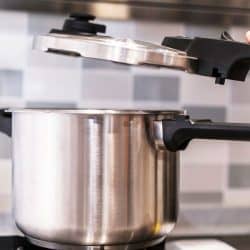
![Close up half cut over cook bad boiled egg on wooden plate.The green color around the yellow egg showing in been cook too long. Hard boiled egg high protein healthy snack for diet. - How Long To Boil An Egg [Soft And Hard]](https://kitchenseer.com/wp-content/uploads/2022/05/CLOSE-1-250x250.jpg)
